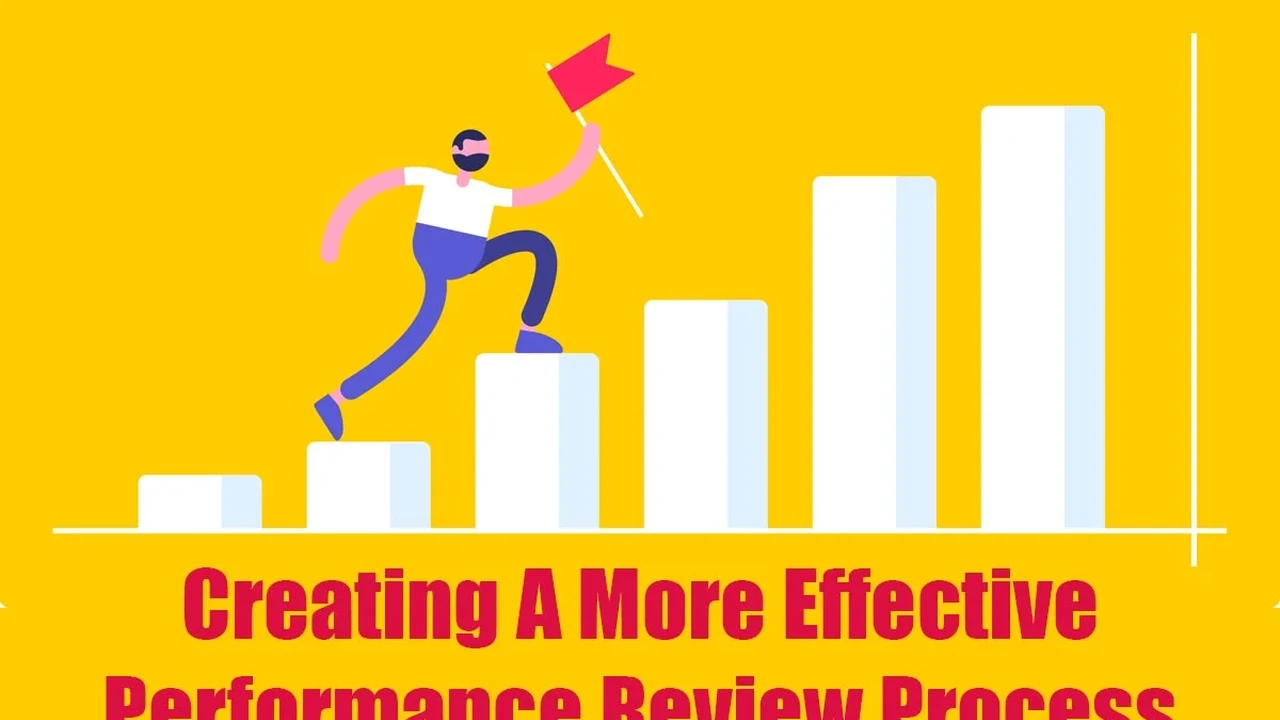How to Negotiate Your Salary Like a Pro
Master the art of salary negotiation with expert tips to secure the compensation you deserve.

How to Negotiate Your Salary Like a Pro
Understanding Salary Negotiation Fundamentals and Your Worth
Before you even think about uttering a number, the absolute first step in any successful salary negotiation is thorough research. This isn't just about finding out what others in similar roles make; it's about understanding your unique value proposition. What specific skills do you bring to the table? What unique experiences set you apart? What quantifiable achievements can you point to that demonstrate your impact?
Start by researching industry benchmarks. Websites like Glassdoor, LinkedIn Salary, Payscale, and Salary.com are invaluable resources. They provide data based on job title, location, experience level, and even company size. Don't just look at the average; pay attention to the range. Are you an entry-level candidate, mid-career, or a seasoned professional? Your experience level will significantly influence where you fall within that range.
Consider the cost of living in the area where the job is located. A salary that's comfortable in a low-cost-of-living area might be barely sufficient in a high-cost city. Tools like Numbeo can help you compare cost of living indices between different cities.
Beyond the numbers, think about the company itself. Is it a startup with high growth potential but perhaps less established benefits? Or is it a large, stable corporation with a comprehensive benefits package? These factors will play a role in the overall compensation picture.
Crafting Your Negotiation Strategy and Preparing Your Pitch
Once you have a solid understanding of your market value, it's time to develop your negotiation strategy. This involves more than just having a target number; it's about building a compelling case for why you deserve that number.
First, determine your ideal salary, your acceptable range, and your walk-away point. Your ideal salary is what you truly believe you're worth and what would make you excited about the role. Your acceptable range is the lowest you'd be willing to go without feeling undervalued. Your walk-away point is the absolute minimum below which you would decline the offer. Having these figures clear in your mind will give you confidence and prevent you from accepting an offer you'll later regret.
Prepare your talking points. This is where you articulate your value. Focus on your accomplishments, not just your responsibilities. Use the STAR method (Situation, Task, Action, Result) to describe how your skills and experiences have led to tangible results. For example, instead of saying, 'I managed social media,' say, 'I developed and executed a social media strategy that increased engagement by 30% and led to a 15% increase in qualified leads.'
Anticipate potential objections. What might the hiring manager say to push back on your request? 'We have a strict budget.' 'That's outside our typical range for this role.' Think about how you'll respond to these. Perhaps you can pivot to discussing other benefits if the salary is non-negotiable, or reiterate your unique value that justifies a higher compensation.
Navigating the Initial Offer and Responding Effectively
The moment of truth: you receive an offer. Your immediate reaction might be excitement or relief, but resist the urge to accept on the spot. Always thank them for the offer and express your enthusiasm for the role and the company. Then, ask for time to review the offer. A day or two is perfectly reasonable. This gives you time to calmly assess the entire package and formulate your counter-offer.
When you're ready to respond, do so professionally and confidently. If the offer is below your target, express your appreciation but state your desired salary, backed by your research and value proposition. For example, 'Thank you so much for the offer. I'm very excited about the opportunity to join [Company Name] as a [Job Title]. Based on my research into market rates for this role with my experience level, and considering my proven ability to [mention a key achievement], I was expecting a salary in the range of [your desired range].'
Remember, negotiation is a conversation, not a demand. Maintain a collaborative and positive tone. Avoid ultimatums or aggressive language. Your goal is to find a mutually beneficial agreement.
Beyond Base Salary Exploring the Total Compensation Package
Salary negotiation isn't just about the base pay. The total compensation package can include a wide array of benefits that significantly impact your overall financial well-being and job satisfaction. Don't overlook these components, especially if the base salary has limited flexibility.
Health and Wellness Benefits and Their Value
Health insurance is often the most significant non-salary benefit. Understand the different plans offered (HMO, PPO, HDHP), the monthly premiums, deductibles, co-pays, and out-of-pocket maximums. A plan with lower premiums might have higher deductibles, meaning you pay more out of pocket before coverage kicks in. Conversely, a higher premium plan might offer more comprehensive coverage from day one. Ask about dental and vision coverage as well. Some companies also offer wellness programs, gym memberships, or mental health support, which can add significant value.
For example, a company might offer a high-deductible health plan (HDHP) with a Health Savings Account (HSA). An HSA allows you to save money tax-free for medical expenses, and often the employer contributes to it. This can be a powerful long-term savings vehicle. Compare this to a traditional PPO plan with higher monthly premiums but lower out-of-pocket costs for routine care. The 'best' option depends on your individual health needs and financial situation.
Retirement Plans and Long Term Financial Security
Retirement plans like 401(k)s (in the US) or similar schemes in Southeast Asia (e.g., EPF in Malaysia, CPF in Singapore) are crucial for long-term financial security. Inquire about employer matching contributions. A 100% match up to 3-6% of your salary is common and essentially free money. Understand the vesting schedule – how long you need to work at the company before the employer's contributions become fully yours. Some companies offer Roth 401(k) options, which allow for tax-free withdrawals in retirement, or even pension plans, though these are less common now.
Consider a scenario where Company A offers a lower base salary but a 6% 401(k) match with immediate vesting, while Company B offers a higher base salary but no match. Over time, the 401(k) match from Company A could easily outweigh the initial salary difference from Company B.
Paid Time Off and Work Life Balance Perks
Paid time off (PTO) includes vacation days, sick days, and personal days. More PTO means more flexibility and better work-life balance. Ask about the number of days, whether they roll over, and if there's a cap. Some companies offer unlimited PTO, which sounds great but can sometimes lead to people taking less time off due to perceived pressure. Also, inquire about paid holidays and parental leave policies. Generous parental leave can be a significant benefit for those planning a family.
For instance, Company X might offer 15 days of PTO, while Company Y offers 20. If you value time off, those extra 5 days from Company Y could be worth more to you than a slightly higher base salary from Company X.
Professional Development and Growth Opportunities
Investing in your professional growth is an investment in your future. Ask about tuition reimbursement, training budgets, conference attendance, and opportunities for certifications. Does the company offer internal mentorship programs or leadership development initiatives? These benefits can significantly enhance your skills and career trajectory, potentially leading to higher earning potential down the line.
Imagine two job offers with similar salaries. One company offers a $2,000 annual budget for professional development, while the other offers none. That $2,000 can be used for online courses, industry certifications, or attending a valuable conference, directly contributing to your career advancement.
Bonuses and Equity Potential for Future Earnings
Many roles, especially in sales, management, or tech, include performance-based bonuses or commissions. Understand how these are calculated and what targets you need to hit. For startups or high-growth companies, equity (stock options or restricted stock units) can be a significant part of the compensation. While speculative, successful equity can be life-changing. Understand the vesting schedule for equity and the potential value.
For example, a startup might offer a lower base salary but significant stock options. If the company goes public or is acquired, those options could be worth millions. However, there's also the risk that they could be worth nothing. A more established company might offer a smaller annual bonus that is more predictable.
Other Perks and Benefits Enhancing Your Work Experience
Don't forget about other perks that can improve your daily work life. These might include commuter benefits, free meals or snacks, on-site gyms, childcare assistance, employee discounts, or even pet-friendly offices. While not directly financial, these can add up and contribute to your overall job satisfaction.
Specific Product Recommendations and Their Application
While salary negotiation is primarily about human interaction, certain tools and resources can significantly aid your preparation and execution. Think of these as your 'products' in the negotiation toolkit.
Salary Research Platforms for Data Driven Decisions
These platforms are your primary source for understanding market rates. Each has its strengths:
- Glassdoor: Offers a vast database of self-reported salaries, company reviews, and interview insights. It's great for getting a general sense of salary ranges for specific roles and companies. Usage: Search by company and job title to see what current and former employees report. Cost: Free, but requires contributing your own salary data or a company review to access full features.
- LinkedIn Salary: Leverages LinkedIn's extensive professional network data. It provides more personalized salary insights based on your skills, experience, and location. Usage: Input your current role and location to see how your salary compares, or research potential salaries for new roles. Cost: Free for basic access; premium LinkedIn subscriptions offer more detailed insights.
- Payscale: Known for its detailed salary reports based on various factors, including education, skills, and certifications. It also offers a personalized salary report builder. Usage: Fill out their comprehensive survey to get a highly customized salary estimate. Cost: Free for basic reports; premium features and detailed reports may have a fee.
- Salary.com: Provides robust salary data, cost-of-living calculators, and career advice. It's good for comparing salaries across different industries and locations. Usage: Use their salary wizard to get estimates for specific job titles and locations. Cost: Free for basic searches; advanced reports and tools may require payment.
Comparison: Glassdoor and LinkedIn are excellent for company-specific data and broader market trends. Payscale offers more granular, personalized reports. Salary.com is strong for cost-of-living adjustments. Using a combination of these will give you the most comprehensive picture.
Communication Tools for Professional Correspondence
While most negotiation happens via email or phone, having professional communication tools is key.
- Grammarly: An AI-powered writing assistant that checks for grammar, spelling, punctuation, clarity, engagement, and delivery errors. Usage: Install the browser extension or desktop app to ensure your negotiation emails are polished and error-free. Cost: Free basic version; Premium and Business plans offer advanced features (e.g., tone detection, conciseness suggestions) starting around $12/month.
- Microsoft Outlook / Gmail: Standard email clients. Usage: For sending professional, well-formatted emails. Ensure your email signature is professional and includes your contact information. Cost: Free with a Microsoft 365 subscription or Google account.
Comparison: Grammarly is a must-have for ensuring your written communication is impeccable. Outlook/Gmail are your primary channels. The 'product' here is the quality of your written communication, which Grammarly significantly enhances.
Negotiation Training Resources for Skill Enhancement
These aren't 'products' in the traditional sense, but rather educational resources that are invaluable for honing your negotiation skills.
- Books: 'Never Split the Difference' by Chris Voss (former FBI hostage negotiator) is highly recommended for its practical, tactical advice on negotiation. 'Getting to Yes' by Roger Fisher and William Ury is a classic on principled negotiation. Usage: Read these to understand negotiation psychology and strategies. Cost: Typically $10-$20 for an e-book or paperback.
- Online Courses: Platforms like Coursera, edX, and Udemy offer courses on negotiation skills. For example, 'Successful Negotiation: Essential Strategies and Skills' by the University of Michigan on Coursera. Usage: Enroll to learn structured negotiation frameworks and practice scenarios. Cost: Varies widely, from free (for audit tracks) to hundreds of dollars for certificate programs.
- Mock Interviews/Role-Playing: Practice with a friend, mentor, or career coach. Usage: Simulate negotiation conversations to build confidence and refine your responses. Cost: Free with a friend; career coaches typically charge $100-$300+ per session.
Comparison: Books provide foundational knowledge. Online courses offer structured learning. Mock interviews provide practical application. A combination of all three will give you the best preparation.
Common Negotiation Scenarios and How to Handle Them
Negotiation isn't always straightforward. Here are a few common scenarios you might encounter and how to approach them.
When the Company Says No to Your Salary Request
It happens. If they flat-out say no to your desired salary, don't despair. This is where you pivot to other aspects of the total compensation package. 'I understand that the base salary might be fixed. Would there be flexibility in increasing the annual bonus, offering a signing bonus, or perhaps more vacation days?' This shows you're flexible and still highly interested in the role, but also that you value your worth.
Negotiating a Counter Offer from Your Current Employer
If you receive an offer from a new company and your current employer makes a counter-offer to keep you, proceed with caution. While it's flattering, ask yourself why they're only offering more now. Is it a genuine desire to retain you, or a temporary fix? Consider the reasons you were looking to leave in the first place. If you accept a counter-offer, ensure it addresses your original concerns, not just the money. Often, people who accept counter-offers end up leaving within a year anyway.
Handling Multiple Job Offers Strategically
This is a great position to be in! When you have multiple offers, you have leverage. You can use one offer to negotiate a better deal with another company. 'I'm very excited about your offer, and I'm also considering another offer that includes [specific benefit, e.g., a higher base salary or more equity]. Is there any flexibility to match or improve upon that?' Be transparent but professional. Don't play games or make up offers.
Final Tips for a Successful Salary Negotiation
Remember these key principles throughout the process:
- Always Negotiate: Most companies expect you to negotiate. Not negotiating leaves money on the table.
- Be Confident, Not Arrogant: Believe in your value, but maintain a respectful and collaborative tone.
- Focus on Value: Frame your requests around the value you bring to the company, not just your personal needs.
- Get it in Writing: Once you've agreed on terms, ensure everything is documented in a formal offer letter before you accept.
- Maintain Relationships: Even if a negotiation doesn't go your way, maintain a positive relationship. The professional world is smaller than you think.
By following these steps and leveraging the right resources, you'll be well-equipped to negotiate your salary like a pro and secure the compensation package you truly deserve.
:max_bytes(150000):strip_icc()/277019-baked-pork-chops-with-cream-of-mushroom-soup-DDMFS-beauty-4x3-BG-7505-5762b731cf30447d9cbbbbbf387beafa.jpg)






